第23章
When asked how he felt upon the ill success of his tragedy,he replied,'Like the Monument;'meaning that he continued firm and unmoved as that column.And let it be remembered,as an admonition to the genus irritabile of dramatick writers,that this great man,instead of peevishly complaining of the bad taste of the town,submitted to its decision without a murmur.He had,indeed,upon all occasions,a great deference for the general opinion:'A man (said he)who writes a book,thinks himself wiser or wittier than the rest of mankind;he supposes that he can instruct or amuse them,and the publick to whom he appeals,must,after all,be the judges of his pretensions.'
On occasion of his play being brought upon the stage,Johnson had a fancy that as a dramatick authour his dress should be more gay than what he ordinarily wore;he therefore appeared behind the scenes,and even in one of the side boxes,in a scarlet waistcoat,with rich gold lace,and a gold-laced hat.He humourously observed to Mr.Langton,'that when in that dress he could not treat people with the same ease as when in his usual plain clothes.'Dress indeed,we must allow,has more effect even upon strong minds than one should suppose,without having had the experience of it.His necessary attendance while his play was in rehearsal,and during its performance,brought him acquainted with many of the performers of both sexes,which produced a more favourable opinion of their profession than he had harshly expressed in his Life of Savage.
With some of them he kept up an acquaintance as long as he and they lived,and was ever ready to shew them acts of kindness.He for a considerable time used to frequent the Green Room,and seemed to take delight in dissipating his gloom,by mixing in the sprightly chit-chat of the motley circle then to be found there.Mr.David Hume related to me from Mr.Garrick,that Johnson at last denied himself this amusement,from considerations of rigid virtue;saying,'I'll come no more behind your scenes,David;for the silk stockings and white bosoms of your actresses excite my amorous propensities.'
1750:AETAT.41.]--In 1750he came forth in the character for which he was eminently qualified,a majestick teacher of moral and religious wisdom.The vehicle which he chose was that of a periodical paper,which he knew had been,upon former occasions,employed with great success.The Tatler,Spectator,and Guardian,were the last of the kind published in England,which had stood the test of a long trial;and such an interval had now elapsed since their publication,as made him justly think that,to many of his readers,this form of instruction would,in some degree,have the advantage of novelty.A few days before the first of his Essays came out,there started another competitor for fame in the same form,under the title of The Tatler Revived,which I believe was 'born but to die.'Johnson was,I think,not very happy in the choice of his title,The Rambler,which certainly is not suited to a series of grave and moral discourses;which the Italians have literally,but ludicrously translated by Il Vagabondo;and which has been lately assumed as the denomination of a vehicle of licentious tales,The Rambler's Magazine.He gave Sir Joshua Reynolds the following account of its getting this name:'What MUSTbe done,Sir,WILL be done.When I was to begin publishing that paper,I was at a loss how to name it.I sat down at night upon my bedside,and resolved that I would not go to sleep till I had fixed its title.The Rambler seemed the best that occurred,and I took it.'
With what devout and conscientious sentiments this paper was undertaken,is evidenced by the following prayer,which he composed and offered up on the occasion:'Almighty GOD,the giver of all good things,without whose help all labour is ineffectual,and without whose grace all wisdom is folly;grant,I beseech Thee,that in this undertaking thy Holy Spirit may not be with-held from me,but that I may promote thy glory,and the salvation of myself and others:grant this,O LORD,for the sake of thy son JESUSCHRIST.Amen.'
The first paper of The Rambler was published on Tuesday the 20th of March,1750;and its authour was enabled to continue it,without interruption,every Tuesday and Friday,till Saturday the 17th of March,1752,on which day it closed.This is a strong confirmation of the truth of a remark of his,which I have had occasion to quote elsewhere,that 'a man may write at any time,if he will set himself doggedly to it;'for,notwithstanding his constitutional indolence,his depression of spirits,and his labour in carrying on his Dictionary,he answered the stated calls of the press twice a week from the stores of his mind,during all that time.
Posterity will be astonished when they are told,upon the authority of Johnson himself,that many of these discourses,which we should suppose had been laboured with all the slow attention of literary leisure,were written in haste as the moment pressed,without even being read over by him before they were printed.It can be accounted for only in this way;that by reading and meditation,and a very close inspection of life,he had accumulated a great fund of miscellaneous knowledge,which,by a peculiar promptitude of mind,was ever ready at his call,and which he had constantly accustomed himself to clothe in the most apt and energetick expression.Sir Joshua Reynolds once asked him by what means he had attained his extraordinary accuracy and flow of language.He told him,that he had early laid it down as a fixed rule to do his best on every occasion,and in every company;to impart whatever he knew in the most forcible language he could put it in;and that by constant practice,and never suffering any careless expressions to escape him,or attempting to deliver his thoughts without arranging them in the clearest manner,it became habitual to him.